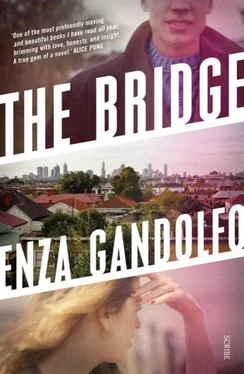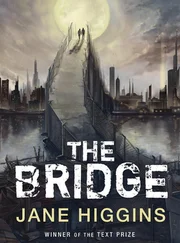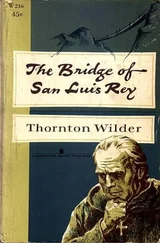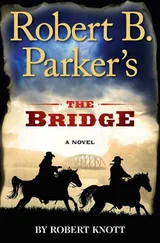‘Yes,’ Jo said over her shoulder as she left the room.
‘Would you like a cup of tea?’
‘No, thank you, I had coffee this morning. Not so long ago.’
‘I didn’t know about the journals,’ Mandy said. She wasn’t old, perhaps late thirties, but she looked exhausted. He’d once seen a row of trees after a bad storm, barely standing, refusing to collapse, but it was obvious that one more gust of wind and they’d topple over. That’s how Mandy struck him. ‘I mean, I know Ashleigh kept journals, but I didn’t know they were here.’
‘I don’t think anyone knew. One of their secrets.’
‘Did you know about the journals? I mean, you and Jo — I didn’t know she was talking to you.’
Antonello recognised Mandy’s anxiety. She was embarrassed having to ask a stranger about her own daughter. This is what children reduced you to. He knew that feeling; he was often surprised by what other people told him about his children. He remembered one parent–teacher night when a middle-aged woman dressed in gypsy clothes — a long, flowing skirt and a peasant top — had asked them if they had talked to Nicki about her sexuality. He had no idea what the woman was talking about but, when he glanced across at Paolina, he could see she wasn’t surprised at all. He sat silently while the two women discussed the possibility that his daughter was gay, the possibility she loved women, as if it were something obvious that only the blind would have missed. It turned out Nicki was bisexual, but that came later, and was also a surprise. And there were other things too — Alex joining the Labor Party, and then a choir. His children were strangers who lived in the same house. Sometimes a look or a mannerism, the tone of their voices, reminded him that they were of the same stock, of the same blood, but otherwise their lives were outside his grasp. Paolina wasn’t surprised by their children’s announcements, by their children’s interests and passions or their sexual choices, so he imagined that mothers noticed things fathers missed. But here was Mandy, looking lost. Her discomfort was palpable.
‘I ran into Jo at the bridge. She was on the boardwalk. I don’t think she saw me, otherwise I think she would’ve left before I arrived there. But then we were both there and we talked.’
‘I’m sorry. I mean, her going to the bridge must be difficult for you.’
‘It’s fine, Mandy. I know she misses Ashleigh. I know she feels terrible and guilty and sad. I know. She loved Ashleigh too.’
‘And the journals?’
‘She told me about the journals, about having them and not knowing what to do with them, worrying whether to give them to Alex and Rae, what will happen to them if she leaves them and you sell the house while she’s in prison.’
‘She talked about prison, about selling the house?’ Mandy said, turning away from Antonello. She filled the kettle and turned it on.
‘She didn’t say much — mostly it was about the journals. I said she should give them to Rae and Alex.’
‘That’s what I would’ve said, if I’d known.’
‘She asked me if I’d take them.’
When the kettle boiled, she pulled out two cups. Antonello didn’t remind her that he didn’t want tea. He watched her fill both cups with hot water, dunk a teabag in and out of each, and place one cup and the sugar and milk in front of him. The tea was already stronger than he liked it. Weak and black was the only way he could drink it, when he drank it at all, which wasn’t often. Coffee with milk for breakfast. Coffee, black, at morning tea. That was it. After that, if he drank, it was red wine, although not during the day. He used to drink during the day, when he was younger, when he was a rigger, when some of them went to the pub at lunchtime even though they weren’t supposed to. Even though it was irresponsible and dangerous, especially for the guys who had managed a second drink and then went straight back to work and onto the cranes, into the lifts, hoisting steel and concrete. Of course, in the library, they did occasionally go out for lunch, for a birthday or a promotion, and he did have a wine or a beer, but when they went back to work, the only machinery they had to operate was a computer.
‘How are Rae and Alex doing?’ Mandy asked.
‘Not great. They’ve sent Jane to spend some time with friends on a farm by the coast, which is good. But Rae and Alex aren’t doing well at all.’
‘I wish I could help, do something, but I think I’d be the last person they’d want to see.’
‘They have friends and family around. You have Jo to worry about.’
‘Yes. Everyone must be so angry at her.’
‘Yes, we’re angry at Jo and at Ashleigh and at the other two girls too. Stupid. How many times have we told them not to drink and drive, not to get in a car with a drunk driver… But it’s useless now. And we all make mistakes. My wife would say it’s God’s will, but I don’t believe in God. I think it’s more random than that. It’s bad luck.’
‘Bad luck…’ Mandy said, as if she were testing out the words.
‘When I was young, we drank and then drove home,’ Antonello said. ‘There weren’t all the ads and the warnings. I guess the laws were the same, but we didn’t think about it. People died on the road, but we kept doing it. We could’ve been killed or killed someone else, but we were lucky, I suppose. Not that I’m saying it’s okay — of course it’s not; they shouldn’t have got in the car, any of them — but they did and were unlucky and life won’t be the same for any of us again.’ Antonello paused. He was close to tears, but he didn’t want to cry in Mandy’s kitchen. The place was already infested with guilt and sadness; he wouldn’t add to it. He took a sip of the bitter tea and continued, ‘Jo is alive and she has to learn to live with it. She has to grieve and to face whatever the law decides is her punishment, and then she’ll have to learn to make a life for herself.’
‘That’s the hard thing. The difficult thing. Even for me. I think, what right has she to a life when she’s responsible for Ashleigh’s death?’
Just as Mandy finished, they both noticed Jo standing at the door with a box.
‘It’s okay, Mum. It’s what I think too,’ Jo said as she put the box on the table. Mandy and Jo were no different to Alex and Rae. The accident had left them all with the sense of ruin, of good things gone irretrievably bad.
‘That sort of thinking is useless,’ Antonello said, too sternly, and then, regretting his tone, dropping his voice to a barely audible whisper, ‘I know how useless it is. There’s nothing fair about life. That kind of talk is useless, unless of course you want to be miserable for the rest of your life.’
There was a pause. ‘Here they are, anyway,’ Jo said, breaking the silence. ‘These are all of Ash’s journals. I hope this is the right thing to do. I hope this is okay with Ash.’
Antonello stood up. The cardboard box on the table had once held a dinner set — the image on the side showed blue-and-white-striped plates and bowls — and now it was filled with his granddaughter’s journals. And for the third time in less than half an hour, he was almost crying. ‘Thank you for the tea, Mandy. Jo, look after yourself.’
He picked up the box. Even though it wasn’t heavy, his back twitched, but he didn’t hesitate, moving along the hallway, out the front door, down the path through the rusty gate, and onto the street. He wasn’t sure about the journals now he had them in his hands, but he knew he needed to take them straight to Ashleigh’s parents, without stopping. Because if he didn’t, he might change his mind. So many things people did in the name of protecting those they loved, but in the end you can’t protect people; you have to give them what they have a right to. You have to let them deal with what there is to deal with.
Читать дальше












